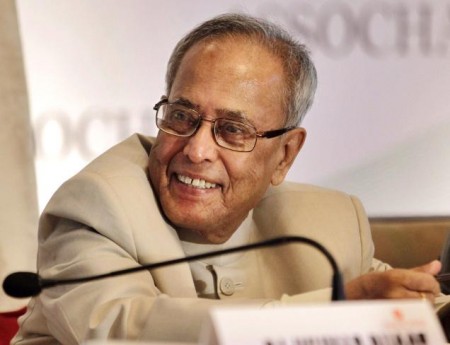Proactive politician to be ceremonial president in India
A chief troubleshooter of Indian National Congress Pranab Mukherjee is set to become next president of the country, as opposition coalition and regional parties remain divided over who they would support.
The ruling coalition, led by Congress, has named Mukherjee as its nominee for the presidential election due on July 19. However, one of the key player in the coalition, Trinamool Congress, remains shut after its favourite former president APJ Abdul Kalam refused the run the contest.
Two regional parties AIADMK and BJD have named former lower house speaker P A Sangma their candidate. Sanga’s candidature has divided his own Nationalist Congress Party. Party chief Shawad Pawar is in support of Mukherjee while many others in the party support Sangma, who founded the party.
Other opposition coalition member JD (U) decided to support the congress nominee Mukherjee. With sharp division in the coalition, the opposition parties on Monday failed to reach any conclusion on filing a new candidate. Bharatiya Janata Party (BJP), leading opposition coalition, is unlikely to let the polls go uncontested.

According to Indian Express daily, leaders of the (opposition) alliance, who met at BJP leader L K Advani’s residence, decided to consult chief ministers including Nitish Kumar (JDU), Narendra Modi and Mamata Banerjee (Trinamool Congress) before making a decision.
Earlier, the BJP had signaled support for congress nominee in return for support to its candidate for vice president. Having garnered enough votes, the Indian Congress has ignored barter for BJP.
As more parties expressing support from Mukherjee, the opposition candidate is likely to be defeated for sure.
Rumours ruled the Indian political circle after ruling coalition named Mukherjee as presidential candidate that Congress chief Sonia Gandhi is making all efforts to pave smoother way for her son Rahul Gandhi as next prime minister of the country.
Additionally, Gandhi is looking for president’s support in forming central government after 2014 parliamentary election where regional parties are likely to be more powerful. In that scenario, Mukherjee, famed for his political acumen, could as president exercise more authority, taking advantage of a vaguely worded constitution.
Mukherjee was long expected to succeed current Prime Minister Man Mohan Singh after 2014 election.
Reuters quotes analysts as saying Mukherjee could play an influential role in steering the country through potentially one of the most politically turbulent periods in modern Indian history.
Mukherjee has held several important portfolios in the past including finance minister, foreign minister, commerce minister (twice) and defence minister.
A US cable from Delhi to Washington in October 2006, exposed by Wikileaks, described him as “extremely ambitious” and that Congress chief Sonia and other Congress leaders “remain suspicious of him and do not want to provide him with an opportunity to push (Prime Minister) Manmohan Singh aside.”
Reuters has described this veteran man, who is in politics for four decades, as crisis manager and even a modern-day Cardinal Richelieu, the clergyman who was the powerful right-hand man to French King Louis XIII.
Mukherjee is appreciated for his ability to reach across party lines and resolve internal conflict with tactics, but critics say as finance minister he has been too complacent, failing to rein in spending on fuel, food and fertilizer subsidies and win cross-party support for reforms to boost flagging economic growth.
At 76, his age seems obstacle neither his ambitions nor his stamina. He remains active from 6 in the morning until going to bed at 2 am.
Mukherjee’s elevation to the post of president is likely to invite some criticism of this ceremonial role for he is a man who never lived powerless for all his political career.